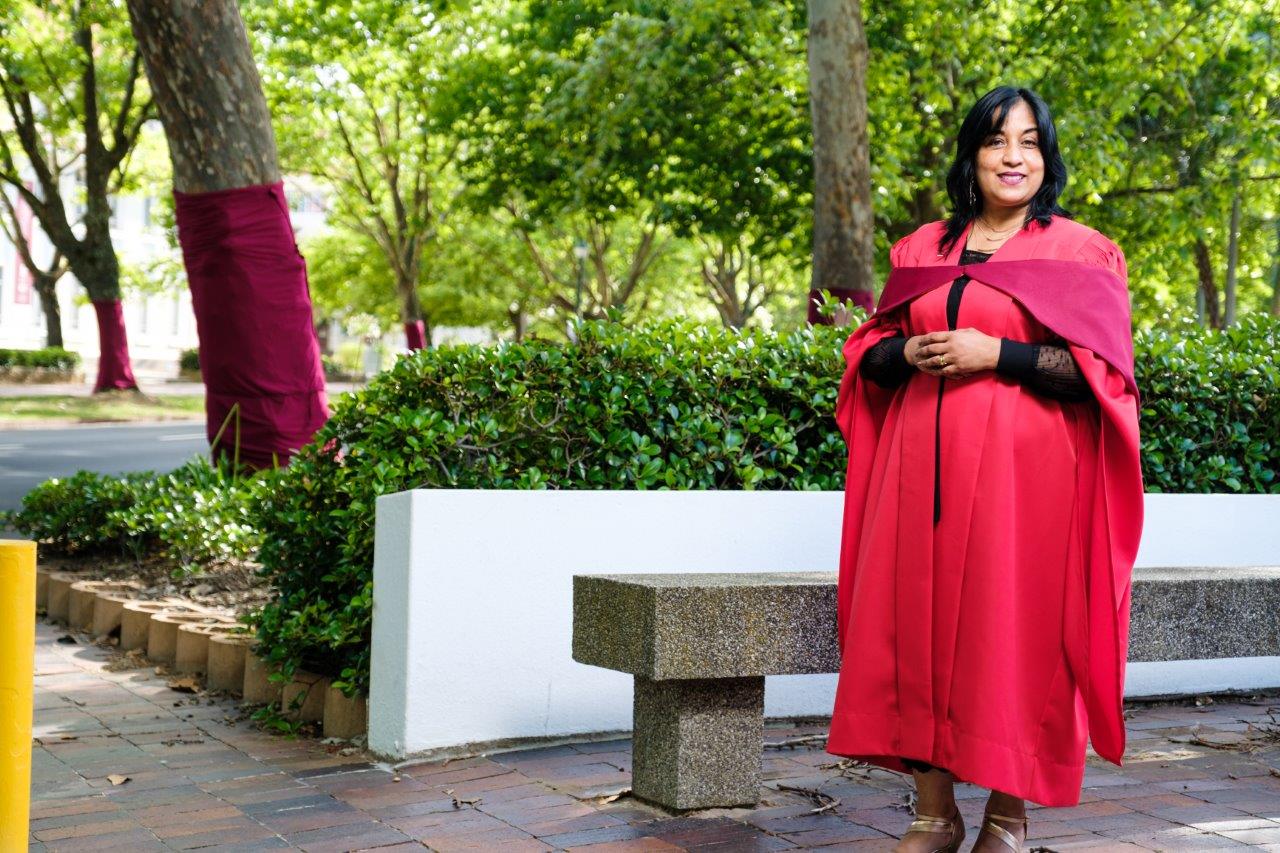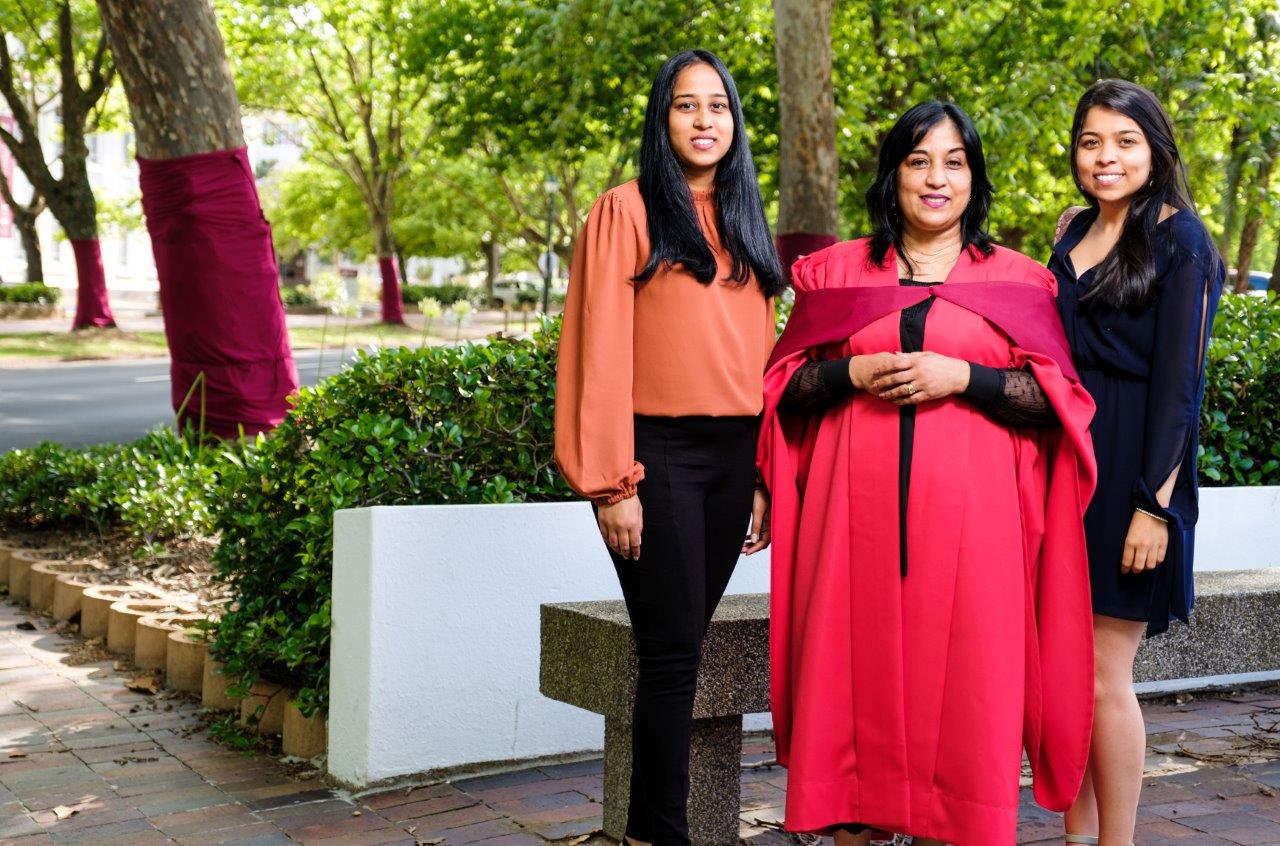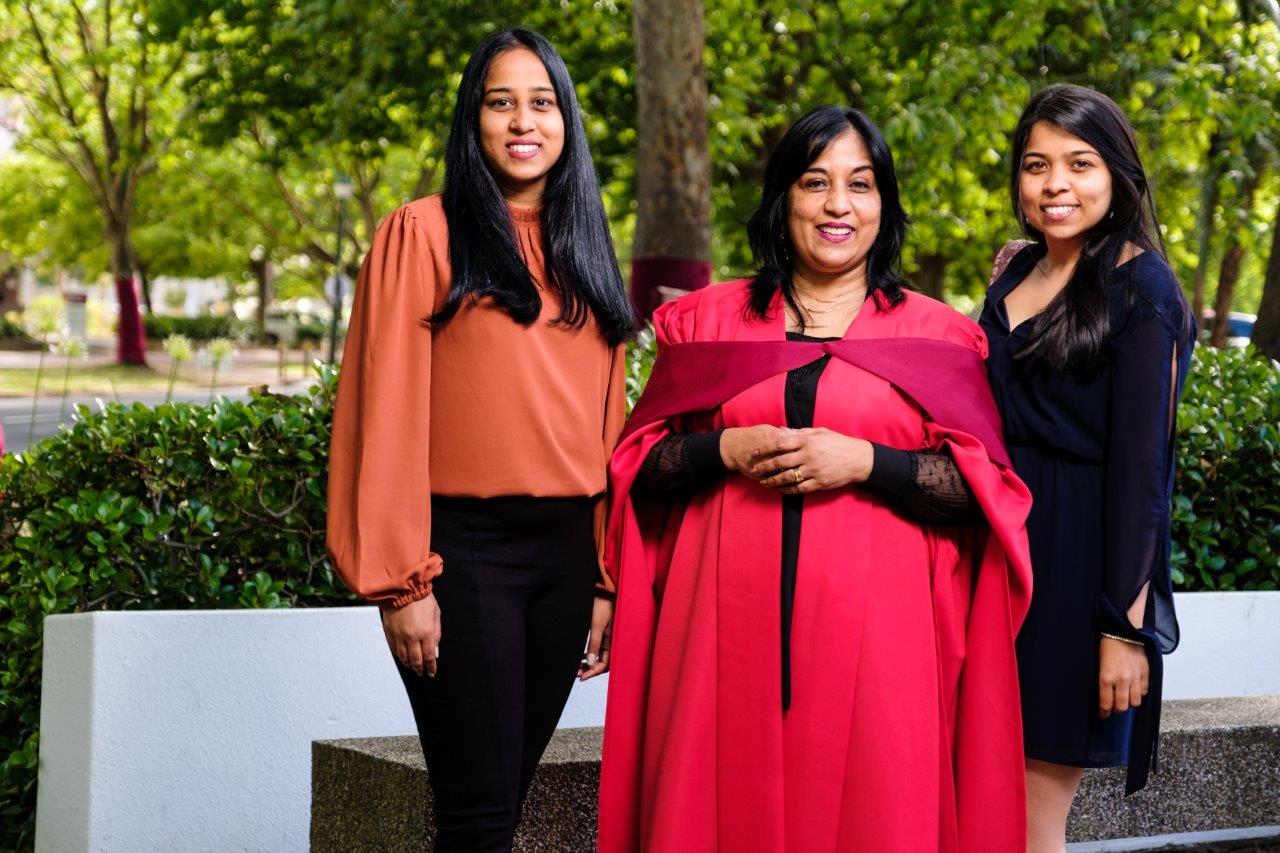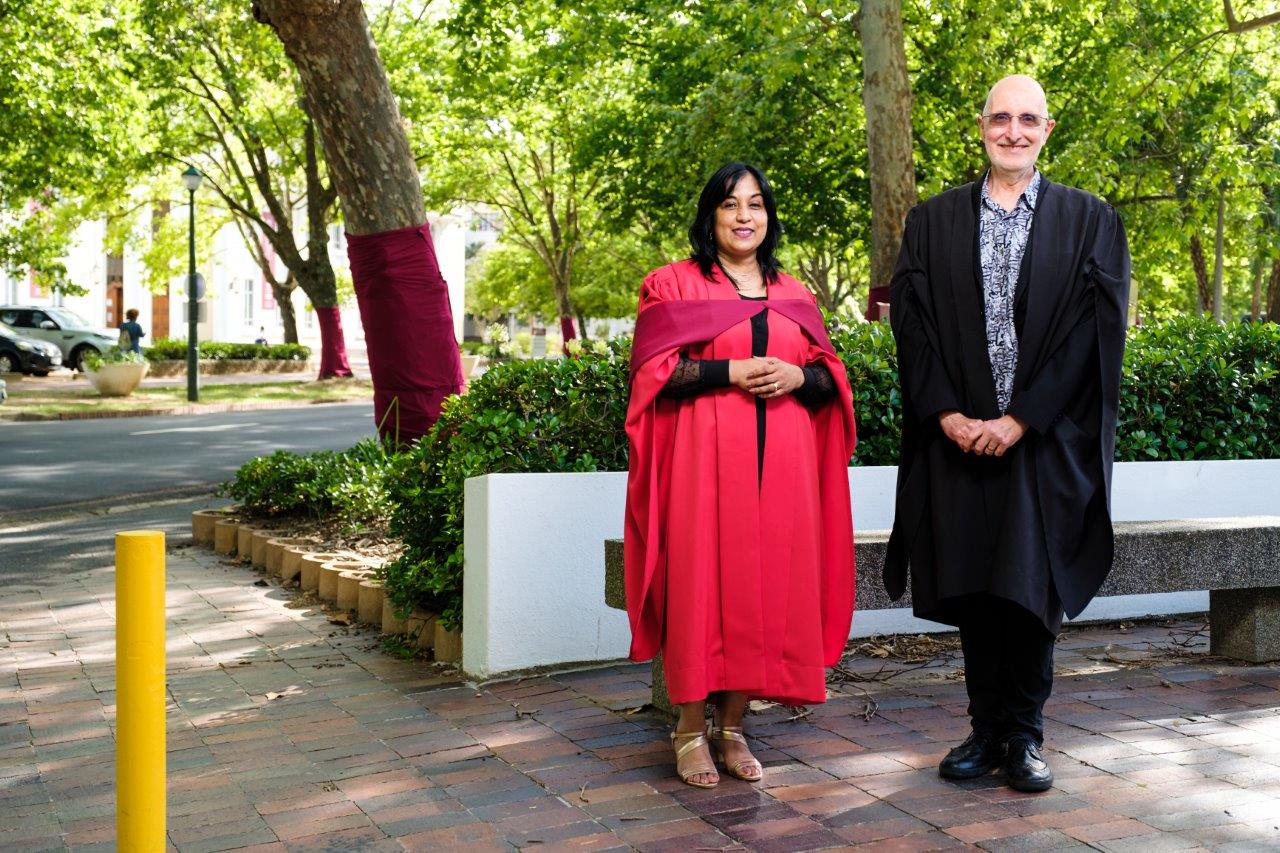When Dr Ronita Mahilall, Chief Executive Officer of St Luke’s Combined Hospices in Cape Town, lost her beloved husband and son 14 years ago, she searched for answers to her questions about life, death and what happens after we die. A devout Hindu, she became increasingly fascinated with spirituality and entered the world of palliative care, or end-of-life care, and spiritual care services. This eventually led to a doctorate in Psychology at Stellenbosch University (SU) under the supervision of Prof Leslie Swartz from SU’s Department of Psychology.
Mahilall, who received her PhD at SU’s December graduation on Monday, 13 December 2021, says she chose SU because she knew she wanted a supervisor who had an understanding of and worked within such a hospice and palliative care space. “Leslie was established in his work on disability and had a long-standing association with St Luke’s and our work, especially spiritual care work. For me it was critical that my supervisor was knowledgeable in a field that is not well resourced.”
Originally from KwaZulu-Natal, and with a background in Social Work, Mahilall joined St Luke’s Combined Hospices in 2016 after having made the move to the Mother City to be with her two daughters Chiara and Ureesa after they graduated from the University of Cape Town (UCT). It was at St Luke’s that she became aware of the scale and scope of the palliative care and spiritual care services that hospices in the Western Cape and other parts of South Africa provide to terminally-ill patients and their families. Having been offering palliative care in Cape Town for over 40 years, St Luke’s Combined Hospices boasts one of the most established spiritual care services in the Western Cape and a large cohort of spiritual care workers.
“While I was struck by this, I was somewhat saddened that spiritual care services were not given the prominence and recognition that spiritual carers and others in my organisation believed they deserved, as part of the overall palliative care service package. I wanted to call attention to these issues and decided that a doctoral study might be a good place to start,” says Mahilall.
As part of her PhD study, she used a national online survey, interviews and group discussions to explore and understand what spiritual care services are currently offered at the 104 listed hospices in South Africa, how hospices view and use spiritual care, and the experiences of spiritual care workers within a hospice palliative care setting, including understanding their expressed and nuanced spiritual care training needs.
Mahilall points out that typically spiritual care workers in South Africa are volunteers with no prerequisite qualification as an entry point into spiritual care. She says it is different from countries in the Global North where spiritual care workers are largely employed paid staff with some or other background in health care as a prerequisite entry requirement. “The picture is significantly different in South Africa as spiritual care is often practiced from one’s personal experiences and perspective which could have implications for care outcomes.”
Mahilall says her study showed that spiritual care workers feel left out and consequently see formalising spiritual care services by developing a standalone training curriculum as being a big step in the direction of gaining importance and recognition.
“Hospice personnel argued for the importance of spirituality as part of holistic palliative care, rooted in the beliefs and traditions of the wide range of patients assisted by hospices.”
“I clearly saw emerge from the data the need for spiritual care training and for the development of a spiritual care curriculum that fits our South African context. But when I looked at the data against our current realities and priorities, centred largely on addressing inequalities, growing our economy, and navigating the COVID-19 pandemic, I am not sure that the time is ripe just yet for the development of a standalone spiritual care curriculum for SA.”
According to Mahilall, palliative care has only recently been recognised a part of the health care system and continuum of care service in South Africa. “It is still jostling to find its rightful place and recognition. Training needs, especially in spiritual care as my work shows, go largely unmet and are fragmented.”
She says the need for palliative care, and spiritual care services in particular, could not be more acutely felt than during the current pandemic.
“While in many COVID-19 cases the timespan from diagnosis to death is so rapid that there is no time for meaningful palliative care interventions, you still have family members who must come to terms with their loss. This is where palliative care services become so vital. The team offering bereavement care services can stay on to support the family through significant anniversaries such as a birthday, wedding anniversary, etc. – even for over 13 months after the patient has passed on.
“Not only do our spiritual care colleagues help patients arrive at meaningful answers to questions about life, religion and what happens after death; they also offer counselling, support and facilitates reconciliation in instances where the patient wants to ‘make peace’ with a family member.”
Having reached the pinnacle of educational achievement, Mahilall is full of praise for her team for providing exceptional palliative care services to patients and their families, and also for keeping her going during the pandemic.
“They are so resilient, so passionate, so giving, and so positive even in the face of death which they see daily. Even in the very early days of COVID-19 when we were all paralysed by fear and uncertainty, the clinical teams donned their personal protective gear and didn’t miss a beat. I drew and continue to draw inspiration from them.
“I am so proud of the day-hospice model of care we have in place which is a community-based out-patient service for patients who have a terminal diagnosis, but who are not actively dying. As a one-stop-palliative care service site, this model provides group support for patients battling a similar challenge.
“We are realists; a terminal diagnosis cannot be reversed. We help patients and their families accept their diagnosis and to live fully within the limitations of their diagnosis. What touches me most is the tenacity of my staff and volunteers to walk this difficult path with their patients daily and still take on new patients while consistently providing the same level of care, love, compassion, and support. They are special people with an incredible capacity to care and support.”
Mahilall emphasises the need for funding so that hospices can continue to deliver vital services to communities across the country.
“Our government sees the value of hospices, but that is not translated into the financial support we seek. This is unfortunate.”
As funding continues to remain a challenge, she hopes her study can help bring national and international prominence to palliative care and spiritual care work.
Now that her PhD study is done and dusted, Mahilall, who describes herself as a consummate foodie, will have more time to cook, bake, mix cuisines and experiment with spices, look for ways to infuse different elements of taste and texture in her food, and taste different wines as she entertains family and friends.
And having already bungee jumped, swing jumped and paraglided, she will also be able to plan her next adventure: jumping off a plane.
But before then, Mahilall will share her work at UCT’s Summer School and visit Kings College London in the United Kingdom in 2022.




